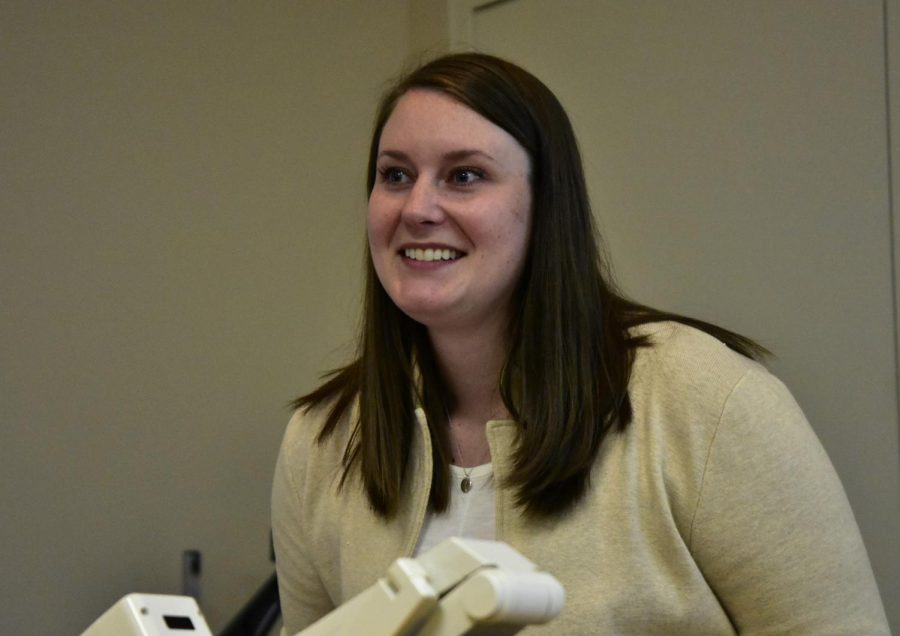Graduate Student Discuses microbiome in human milk
Researchers collected samples from eight countries
BONNIE JAMES | The Daily Evergreen
Biology graduate student Kimberly Lackey talks about research she has done on Mycobacterium leprae and leprosy Wednesday in Abelson Hall.
April 19, 2018
Editor’s Note: The original version of this article misrepresented the nature of graduate student of biology Kimberly Lackey’s research.
While researchers have developed treatments for leprosy, one of the oldest recorded diseases in the world, how people contract the infection is still a mystery.
Graduate student studying biology Kimberly Lackey studies bacteria in human milk and is investigating if humans can transmit leprosy bacteria, which is now called Hanson’s disease, through breast milk.
Lackey said scientists have researched a few different ways that leprosy is transmitted, but breastmilk is a new area in this field. She said so far, her team, which includes WSU, University of Idaho and National Hanson’s Disease program researchers, found leprosy bacteria in some women’s milk, but it’s still too early to make any judgments on risks or benefits. She said she’s still unsure whether the bacteria the team found in the milk is alive, or even harmful.
“Even if it’s in the milk,” Lackey said, “We don’t know if eating it means anything.”
She said diseases can be contracted in many different ways and just because an infant swallows milk that has leprosy bacteria doesn’t mean that they’ll become infected.
Additional reporting and correcting by Rebecca White.





















